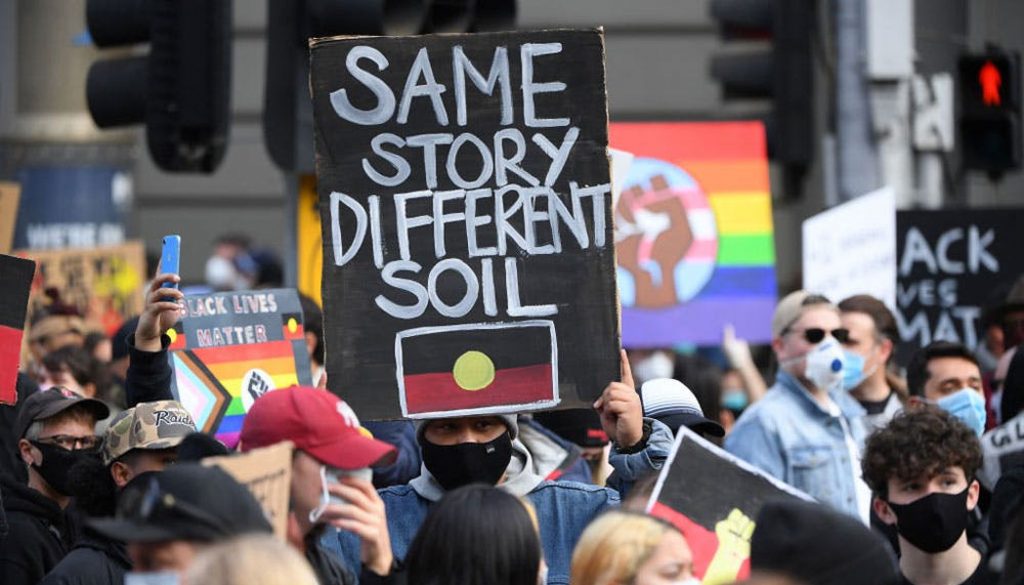Australia: Isolated anti-lockdown protests and BLM solidarity marches
Between March 15 and 18, states of emergency limiting movement and prohibiting gatherings were declared across Australia. Social distancing guidelines require Australians to stay 1.5 m away from each other, and gatherings were strictly limited to 20 or fewer people.
On April 26, the first reported anti-lockdown protest was carried out in the West Gippsland town of Trafalgar. Over 60 people participated in the protest that was streamed on Facebook Live. On May 10, around 100 people gathered in front of Melbourne’s Parliament House protesting lockdown rules, as well as 5G and vaccinations. Multiple scuffles broke out between protesters and police and ten people were arrested, including two organizers. The police spokeswoman said that police were tracking down protesters who could face fines, while the Australian chief medical officer dismissed conspiracy theories linking the virus to 5G networks.
On June 6, massive Bla(c)k Lives Matter/Aboriginal Lives Matter protests took place across the country, including many tens of thousands in Sydney and Melbourne. Organisers distributed masks and hand sanitiser, and took extra measures to allow social distancing. In Sydney, a last-minute decision by the Court of Appeal reversed the previous day’s Supreme Court ruling, to hold the protest authorised, meaning no arrests could be made of protesters under the COVID-19 restrictions. The protests were peaceful, with the exception of one incident in which the New South Wales (NSW) police force pepper sprayed protesters – among them children and a person on crutches – after herding them into a train station. On June 13, a Bla(c)k Lives Matter rally of 7,000 people took place in Perth, with the participants observing social distancing rules. Other BLM rallies took place that day in Darwin, Sydney, Brisbane and other cities despite the Prime Minister discouraging gatherings and police saying they would prosecute protesters.
In NSW, the Police Minister announced he would introduce legislation to ban protests of more than ten people – within days, the same government announced the opening of football stadiums with crowds of 10,000. A a protest for refugee rights, expected to attract between 150 and 200 protesters, was prohibited by the NSW Supreme Court due to public health risks. Protest organizers said they would not take the case to the Court of Appeal, but would go ahead with the protest regardless.
Pic: Getty Images/Quinn Rooney/Apollo Magazine
(Labelled for non-commercial re-use.)

